A Conversation with Bruce Duffie
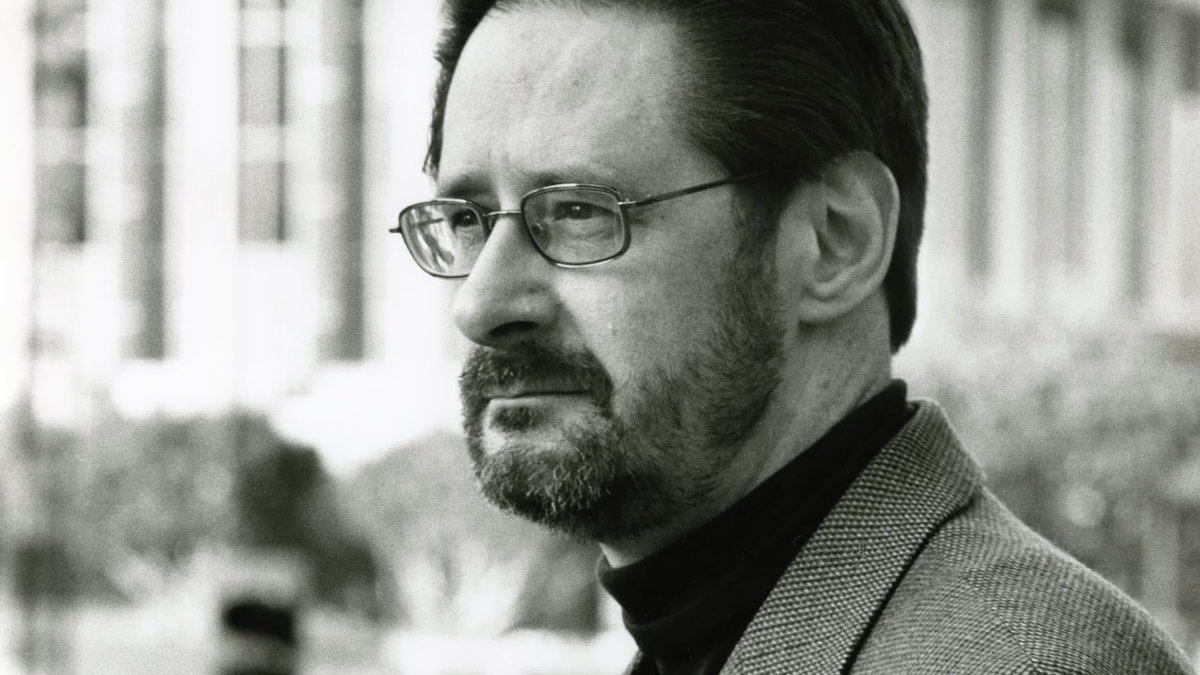

Composer, emeritus professor Steven Stucky dies at 66By Daniel Aloi
Stucky, the Given Foundation Professor of Music Emeritus, joined the Cornell faculty in 1980. An important mentor to emerging composers for decades, he also was a prominent advocate for new music as artistic director of Ensemble X and host of the New York Philharmonic’s critically acclaimed “Hear and Now” series, among other professional roles throughout his career. Stucky was “a generous person, great composer, wonderful teacher and model musical citizen,” said Xak Bjerken, pianist and professor of performance. He won the 2005 Pulitzer Prize in music for Second Concerto for
Orchestra, originally commissioned by the Los Angeles Philharmonic.
Appointed composer-in-residence by André Previn in
1988, Stucky worked for 21 years with the orchestra, 17 of them as
consulting composer for new music.
The same year as his Pulitzer win, Stucky also received the Medal
of the Witold Lutosławski Society, and his 2000 string quartet Nell’ombra,
Nella Luce (In Shadow, in Light) was included in Chamber Music
America’s “101 Great American Ensemble Works.” A memorial concert for Stucky will be held Monday, April 18, at
8 PM in Barnes Hall Auditorium, followed by a reception. Born in Kansas November 7, 1949, Stucky was raised “in the Midwest
and Southwest on a steady diet of Copland,” he once wrote. He
studied at Baylor University before attending Cornell, earning a doctorate
of Musical Arts in composition in 1978. An active and in-demand composer, conductor, writer, lecturer and teacher, Stucky was known to local audiences as artistic director of Ensemble X, the new-music ensemble he founded in 1997, featuring Cornell and Ithaca College faculty musicians on wind, string and percussion instruments, piano and voice. In 2014 he retired from Cornell and was named an emeritus professor, and joined the Juilliard School to teach composition. He was diagnosed with brain cancer in November. “He went out of his way to come to the Ensemble X concert last Sunday, and he was warm and generous with his students, who saw him for the first time after his surgery in early December,” Bjerken said. “He was such a gentle yet powerful influence on so many of us.” Said Steven Pond, chair and associate professor of music: “Despite the challenges of treating his illness, Steve was an active presence in our musical community until just a few days ago. In his decades-long career in our department, Steve’s kind heart and cool head made him invaluable. His impression is left on the many graduate and undergraduate students he taught and advised.” Stucky also continued to mentor his Cornell graduate students as an emeritus professor, Pond said. Stucky’s works were widely performed and recorded. Album Leaves,
four miniatures for piano he composed for Bjerken in 2002, appears
on Gloria Cheng’s Piano Music of Salonen, Stucky &
Lutoslawski, which won a Grammy Award in 2009 [shown below].
His 2012 oratorio August 4, 1964, commissioned by the
Dallas Symphony Orchestra and Chorus to honor the centennial of Lyndon
B. Johnson’s birth, received a Grammy nomination for Contemporary Classical
Composition. [More on that work farther down on this webpage.]
Highlights of his later work include the song cycle The Stars and the Roses (2012-13); the 2014 Ojai Music Festival premiere of The Classical Style: An Opera (of Sorts); and Winter Stars, his 2014 setting of a Sara Teasdale poem. He received the prestigious Deems Taylor Award from the American Society of Composers, Authors and Publishers for his 1981 book Lutosławski and His Music. Other honors include a National Endowment for the Arts Fellowship in 1978, a Guggenheim Fellowship in 1986 and a Bogliasco Fellowship in 1997, and election to the American Academy of Arts and Letters and the American Academy of Arts and Sciences. Stucky was director of composition studies at the Aspen Music Festival and was recently announced as director of the Festival of Contemporary Music at Tanglewood. He was a trustee of the American Academy in Rome, a board member of the Koussevitzky Music Foundation, and served as chair of the board and director of New Music USA. “In his career as a composer and intellectual, Steve rose to the top ranks in his field,” Pond said. He is survived by his wife, Kristen; former wife, Melissa Whitehead Stucky, and two children, Matthew and Maura. |
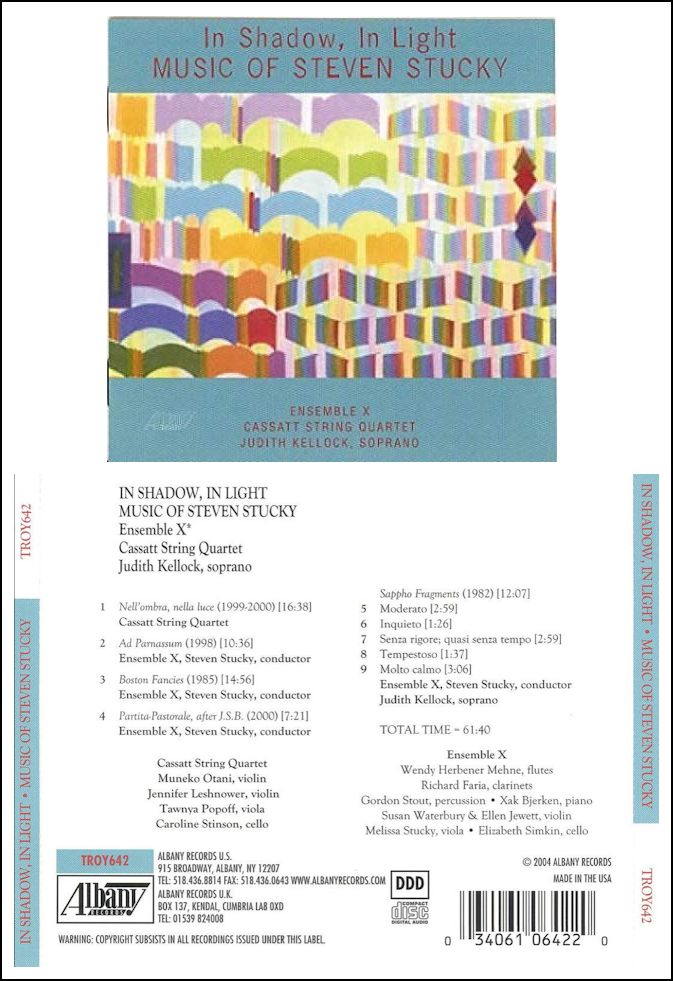 BD: So, you’re not talking just about
the pre-concert talks, but also about the musical performance?
BD: So, you’re not talking just about
the pre-concert talks, but also about the musical performance?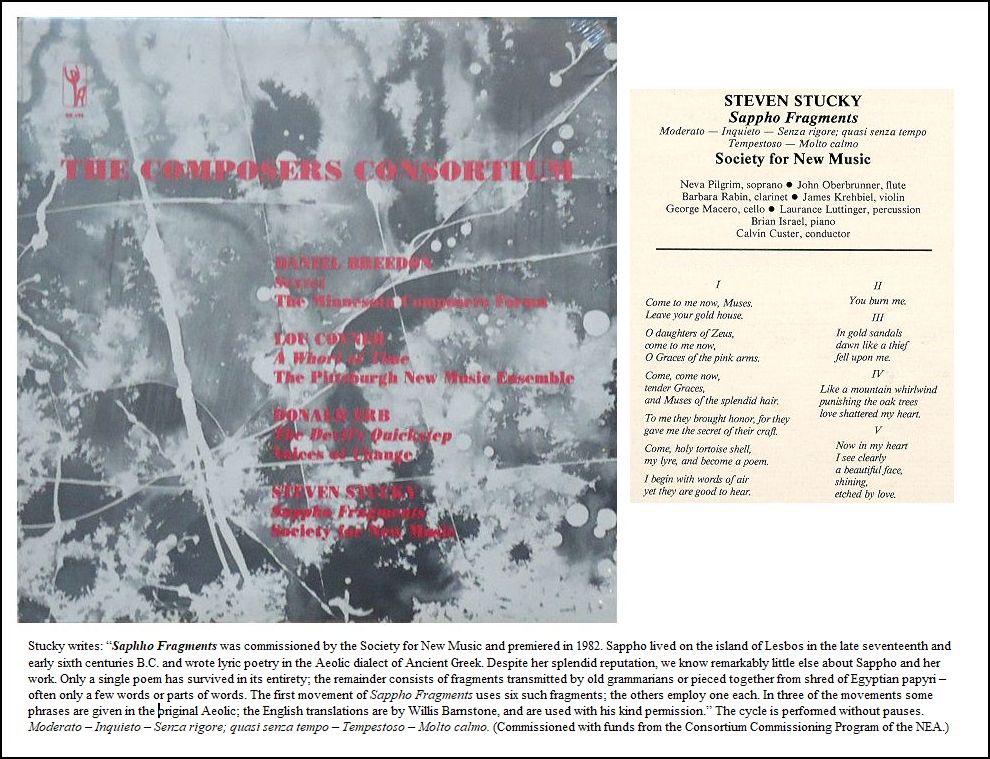
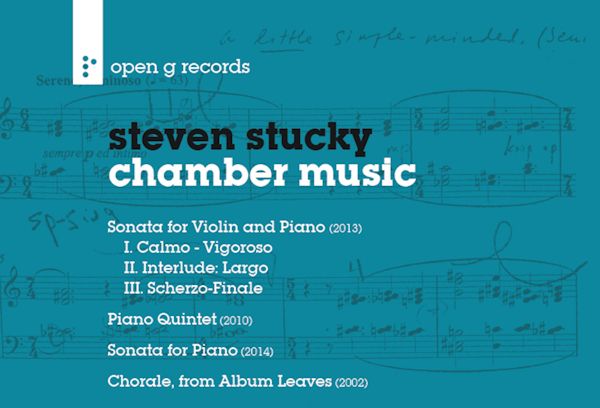 Stucky: It’s as near being worth believing
in as I can make it, and I sometimes I’m not able to decide until after
number of sets of performances how I really feel about the piece.
Stucky: It’s as near being worth believing
in as I can make it, and I sometimes I’m not able to decide until after
number of sets of performances how I really feel about the piece.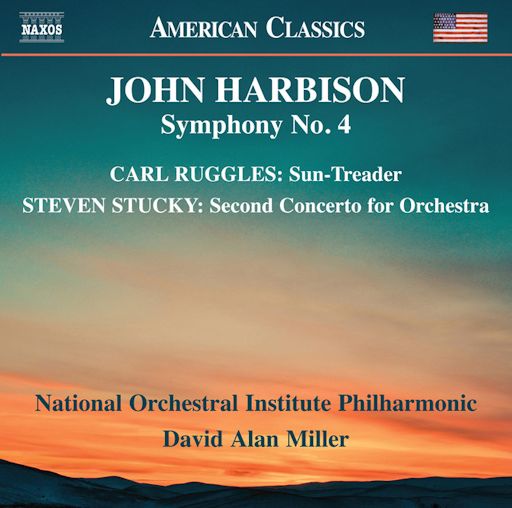 BD: When did ‘tonality’
cease being a dirty word?
BD: When did ‘tonality’
cease being a dirty word?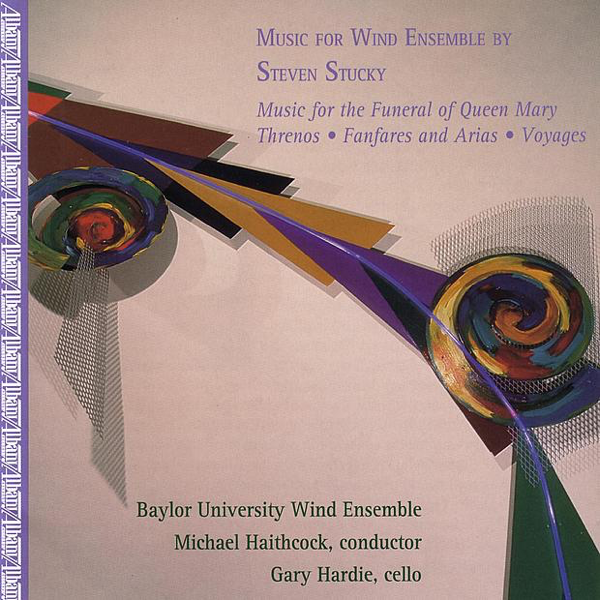 Stucky: If you’re a composer, you end up writing your
music. I don’t think my music is at all any of those three, except
there is some slight resemblance to Husa in a certain way. It’s
not something I got from Husa, but something we both got from a common
third source, the Stravinsky-Janáček line, which is East European
from the first half of the Twentieth century. We both also come
out of Bartók. I was attracted to his music, and enjoyed studying
with Husa because we had the same roots. But I don’t think a good
teacher produces a copy of himself — even
a distant copy — but finds a way to
enable the student to be himself. That good teacher figures out
what the student is trying to do, and then helps him do it. Burrill
Philips was wonderful at that. [Sighs] I don’t think many people
know his music anymore.
Stucky: If you’re a composer, you end up writing your
music. I don’t think my music is at all any of those three, except
there is some slight resemblance to Husa in a certain way. It’s
not something I got from Husa, but something we both got from a common
third source, the Stravinsky-Janáček line, which is East European
from the first half of the Twentieth century. We both also come
out of Bartók. I was attracted to his music, and enjoyed studying
with Husa because we had the same roots. But I don’t think a good
teacher produces a copy of himself — even
a distant copy — but finds a way to
enable the student to be himself. That good teacher figures out
what the student is trying to do, and then helps him do it. Burrill
Philips was wonderful at that. [Sighs] I don’t think many people
know his music anymore.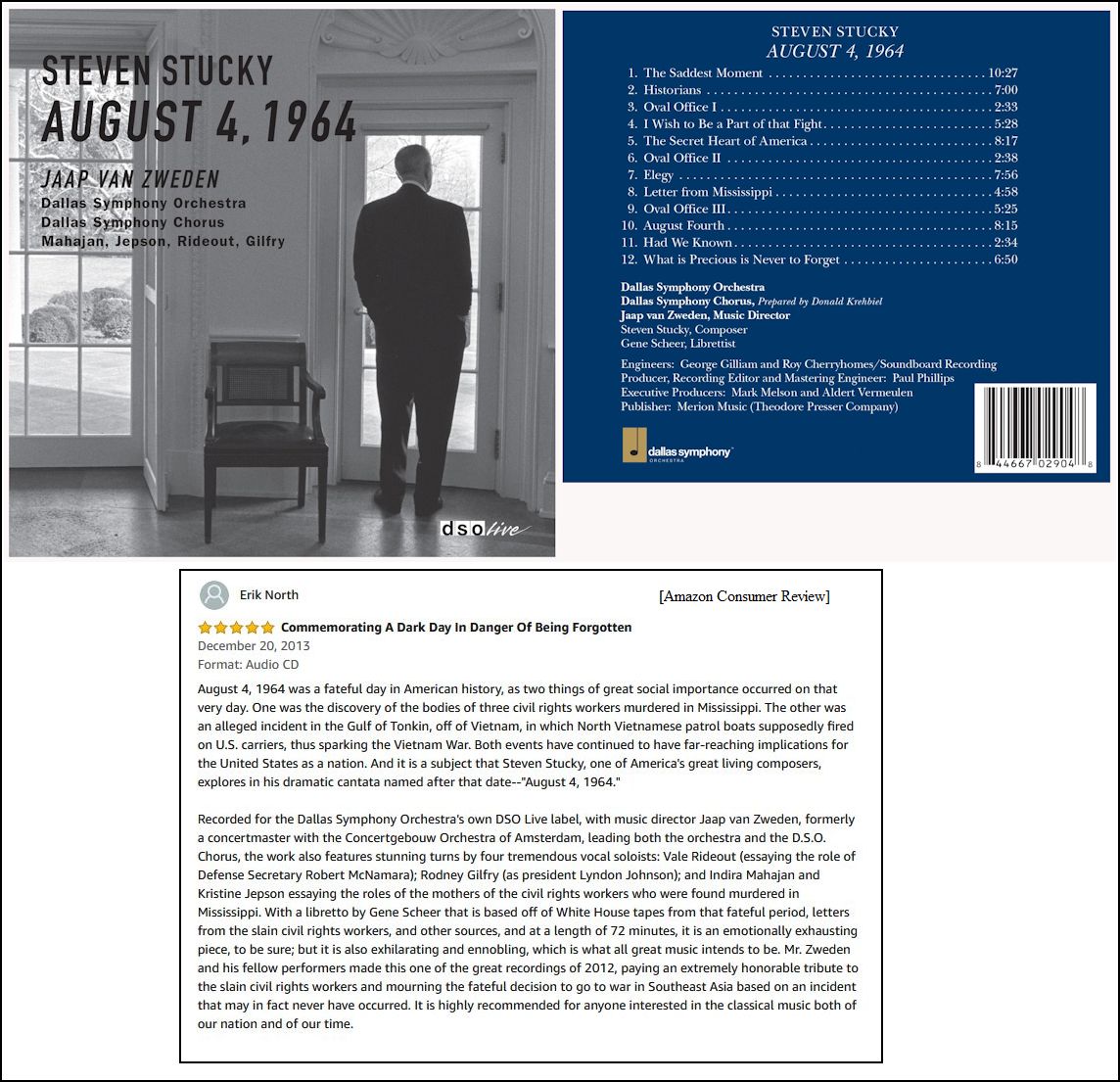
| The mid-1880s marked a turning point in
Shaw's life, both personally and professionally: he lost his virginity,
had two novels published, and began a career as a critic. He had been
celibate until his twenty-ninth birthday, when his shyness was overcome
by Jane (Jenny) Patterson, a widow some years his senior. Their affair
continued, not always smoothly, for eight years. Shaw's sex life has
caused much speculation and debate among his biographers, but there is
a consensus that the relationship with Patterson was one of his few non-platonic
romantic liaisons.
--- [Photo of Shaw at left dates from 1888] --- Of Shaw's various reviewing activities in the 1880s and 1890s
it was as a music critic that he was best known. After serving as deputy
in 1888, he became musical critic of The Star in February 1889,
writing under the pen-name Corno di Bassetto. [A corno di bassetto is the Italian
name for an obsolete musical instrument, the basset horn. Shaw chose it
as his pen name because he thought it seemed dashing, saying, "It sounded
like a foreign title and nobody knew what a corno di bassetto
was". Only later did he hear one played, after which he declared it, "a
wretched instrument [of] peculiar watery melancholy. ... The devil
himself could not make a basset horn sparkle".] In May 1890 he moved back to The World, where he wrote a weekly column as "G.B.S." for more than four years. In the 2016 version of the Grove Dictionary of Music and Musicians, Robert Anderson writes, "Shaw's collected writings on music stand alone in their mastery of English and compulsive readability." Shaw ceased to be a salaried music critic in August 1894, but published occasional articles on the subject throughout his career, his last in 1950. From 1895 to 1898, Shaw was the theatre critic for The Saturday Review, edited by his friend Frank Harris. As at The World, he used the by-line "G.B.S." He campaigned against the artificial conventions and hypocrisies of the Victorian theatre and called for plays of real ideas and true characters. By this time, he had embarked in earnest on a career as a playwright. He later said, "I had rashly taken up the case; and rather than let it collapse I manufactured the evidence". |
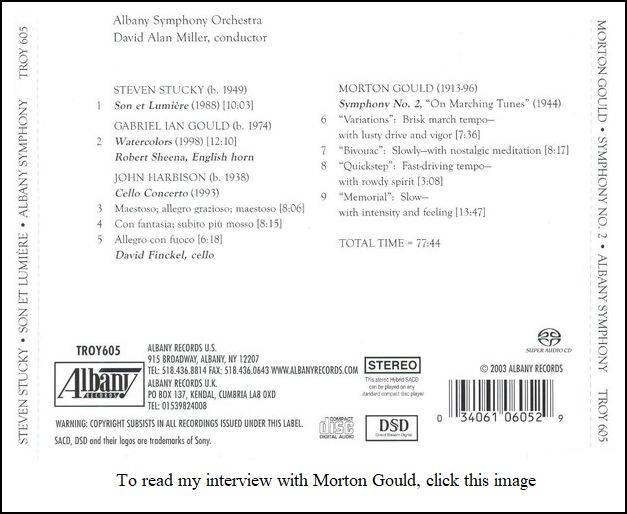 BD: You brought up a word a moment ago that I want
to pounce on just a little bit, not in terms of criticism but in terms
of music, and that’s ‘entertainment’.
In your pieces, or in music in general, where is the balance between
an artistic achievement and an entertainment value?
BD: You brought up a word a moment ago that I want
to pounce on just a little bit, not in terms of criticism but in terms
of music, and that’s ‘entertainment’.
In your pieces, or in music in general, where is the balance between
an artistic achievement and an entertainment value?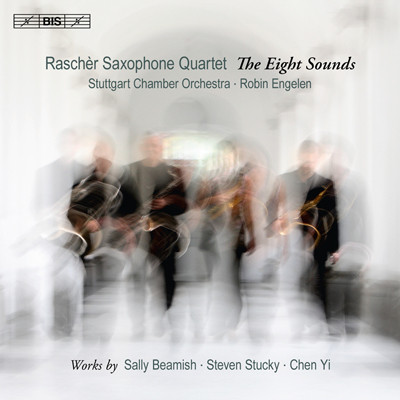 BD: When did you change from taking
notes off the page to putting notes onto the page?
BD: When did you change from taking
notes off the page to putting notes onto the page?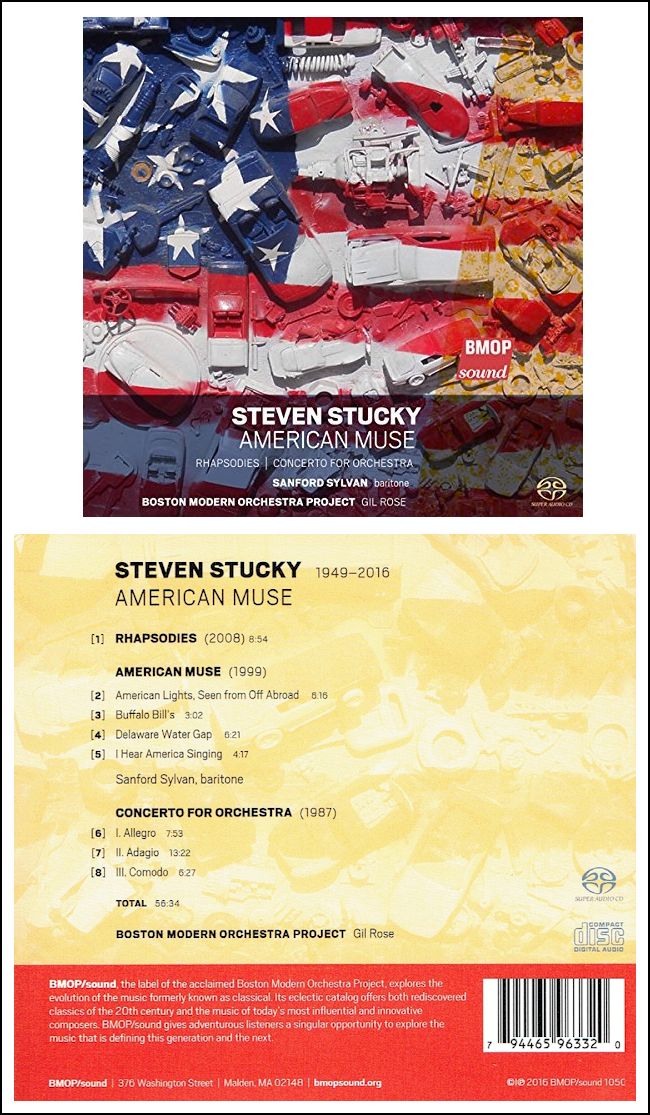 BD: Are you optimistic about the
future of musical composition?
BD: Are you optimistic about the
future of musical composition?© 1992 Bruce Duffie
This conversation was recorded in Chicago on April 23, 1992. Portions were broadcast on WNIB in 1994, 1997, and 1999; on WNUR in 2009 and 2013; and on Contemporary Classical Internet Radio in 2009. This transcription was made in 2019, and posted on this website at that time. My thanks to British soprano Una Barry for her help in preparing this website presentation.
To see a full list (with links) of interviews which have been transcribed and posted on this website, click here.
Award - winning broadcaster Bruce Duffie was with WNIB, Classical 97 in Chicago from 1975 until its final moment as a classical station in February of 2001. His interviews have also appeared in various magazines and journals since 1980, and he now continues his broadcast series on WNUR-FM.
You are invited to visit his website for more information about his work, including selected transcripts of other interviews, plus a full list of his guests. He would also like to call your attention to the photos and information about his grandfather, who was a pioneer in the automotive field more than a century ago. You may also send him E-Mail with comments, questions and suggestions.